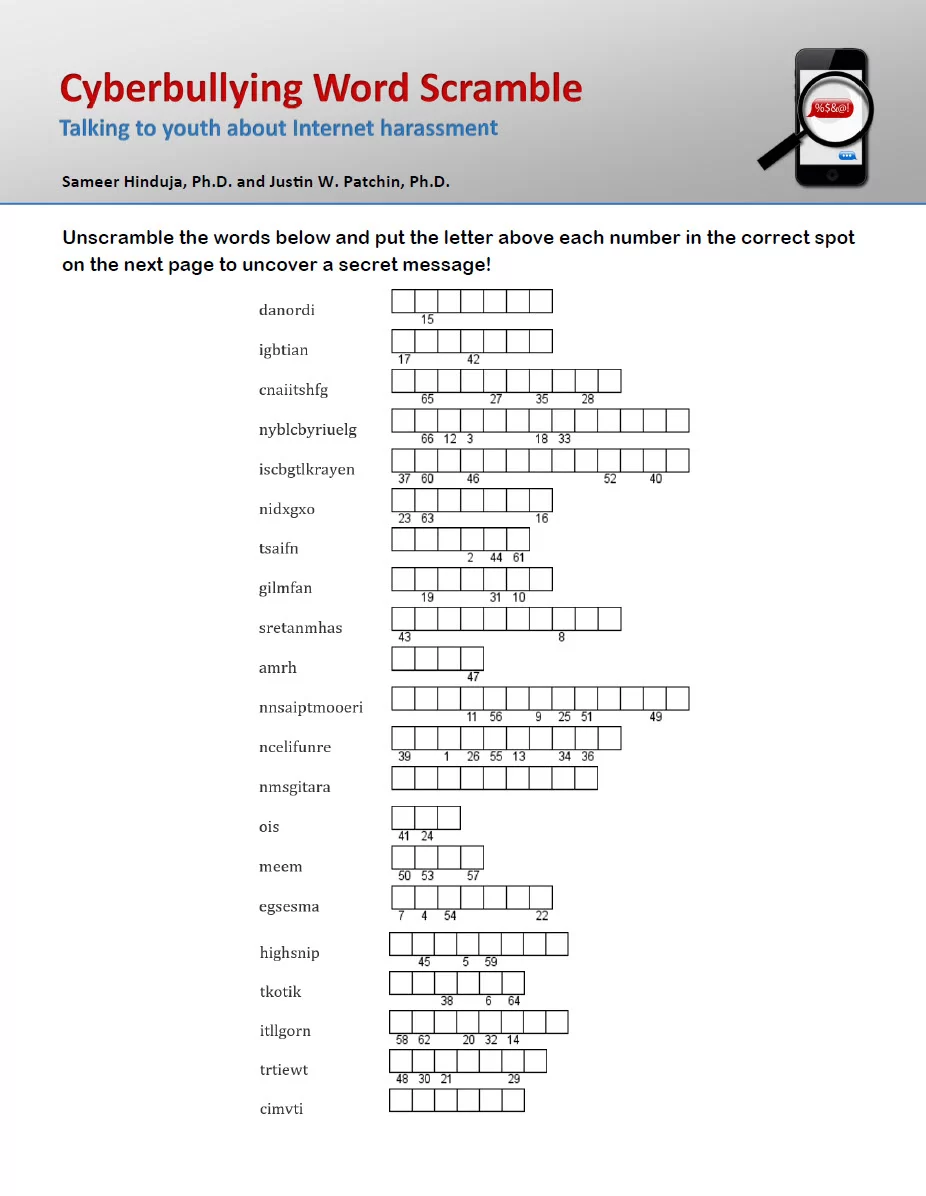
Cyberbullying Activity: Word Scramble
Use this Word Scramble activity to introduce students to important concepts related to cyberbullying and Internet safety. Patchin, J. W. & Hinduja, S. (2022). Cyberbullying Activity: Word Scramble. Cyberbullying Research Center. Download PDF
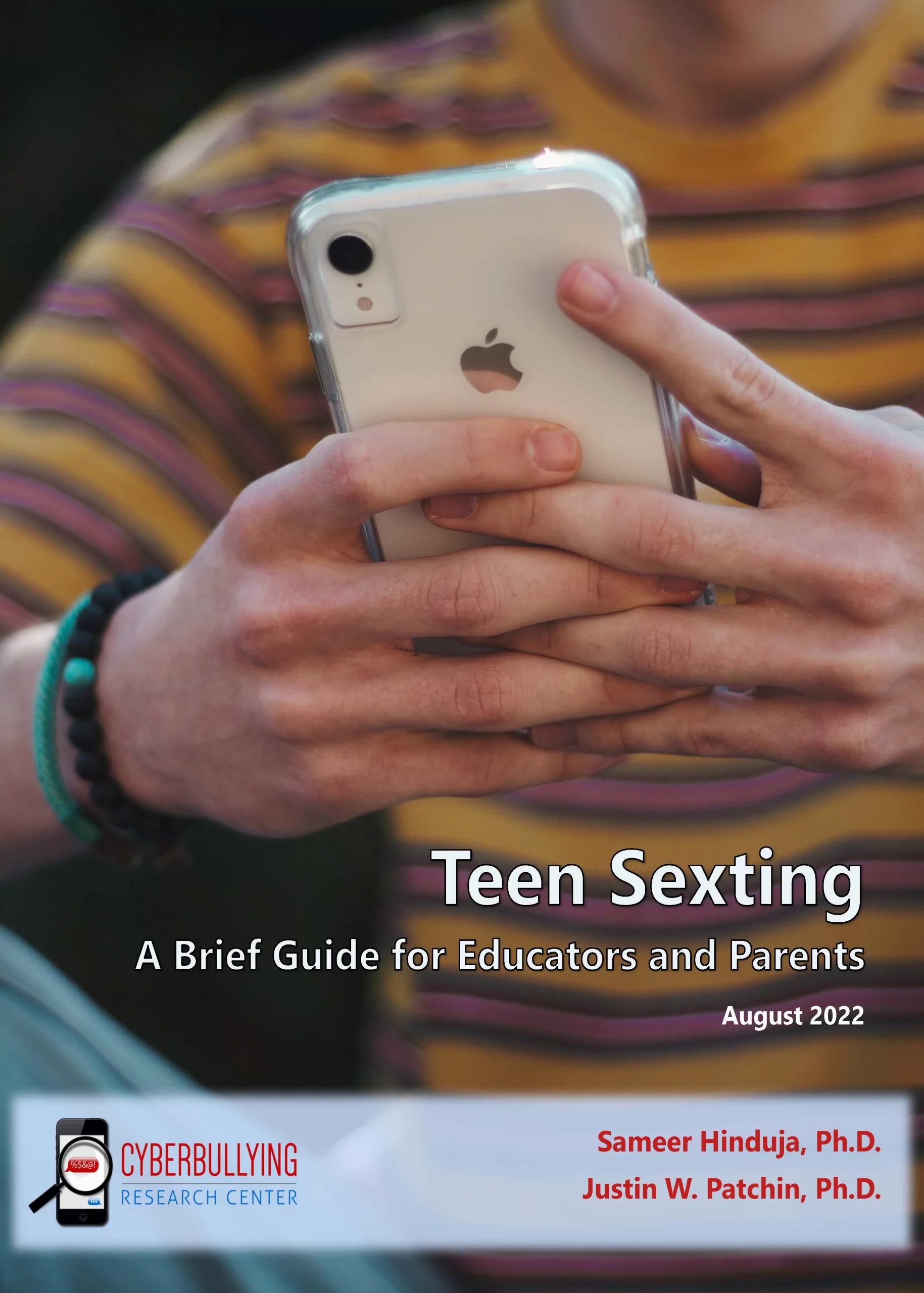
Teen Sexting: A Brief Guide for Educators and Parents
This research summary reviews what is currently known about teen sexting. Research from across the United States is discussed, along with practical solutions for parents, educators, and other adults to prevent and respond to teen sexting. Citation information: Hinduja, S. & Patchin, J. W. (2022). Sexting – A Brief Guide for Educators and Parents. Cyberbullying […]
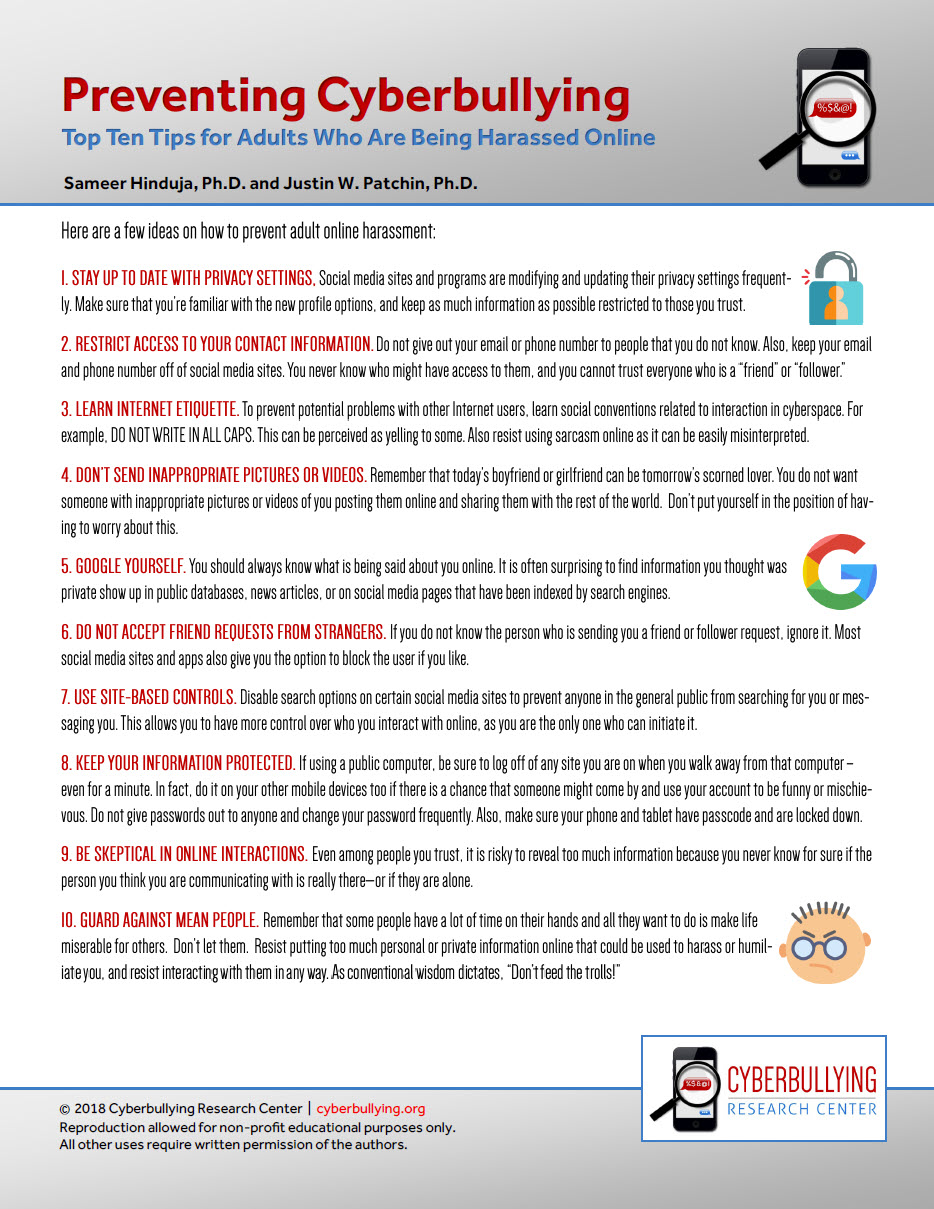
Preventing Cyberbullying: Top Ten Tips for Adults Who Are Being Harassed Online
(For a formatted .pdf version of this article for distribution, click on the image above [or click here]). Spanish Translation Available Here Here are a few ideas on how to prevent adult online harassment: 1. STAY UP TO DATE WITH PRIVACY SETTINGS, Social media sites and programs are modifying and updating their privacy settings frequently. […]
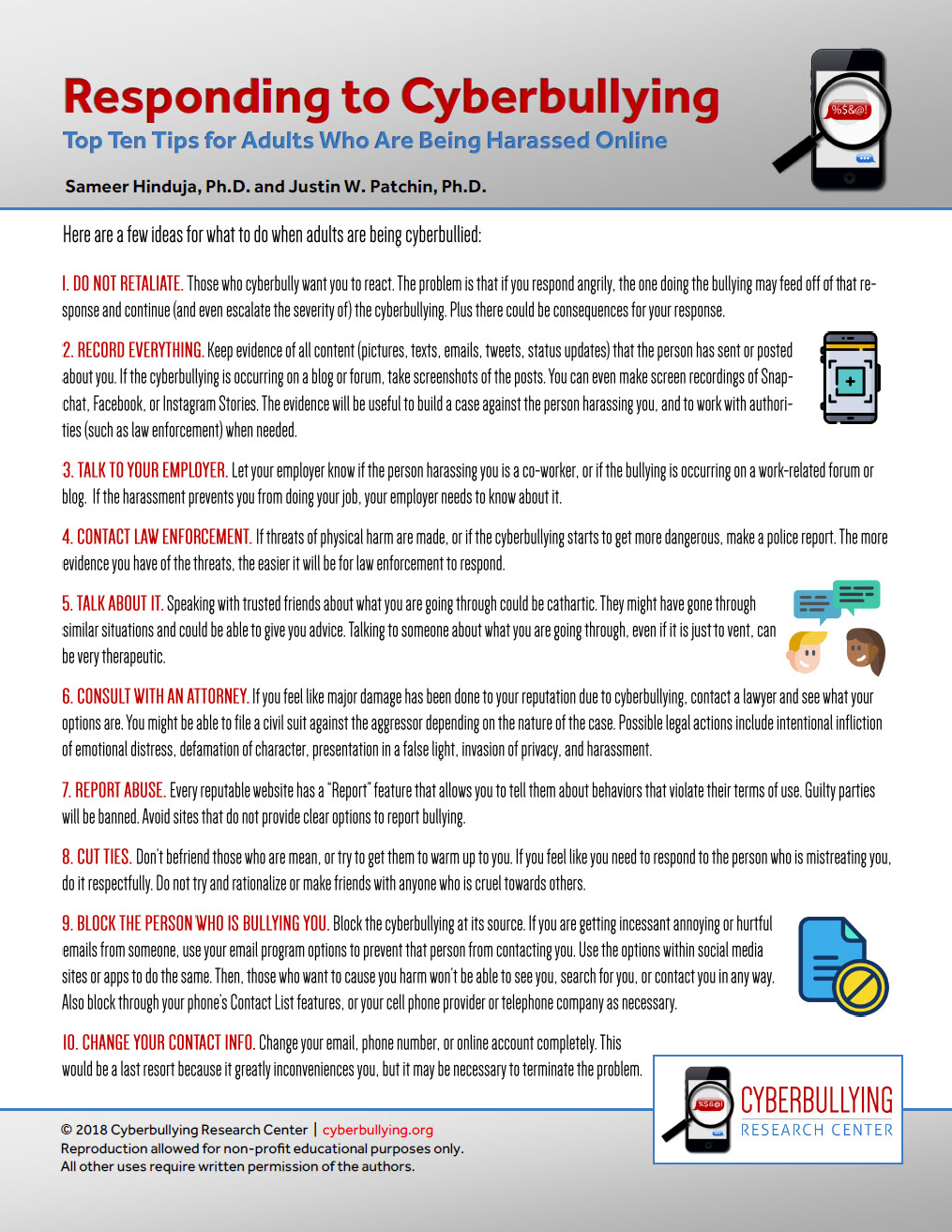
Responding to Cyberbullying: Top Ten Tips for Adults Who Are Being Harassed Online
(For a formatted .pdf version of this article for distribution, click on the image above [or click here]). Spanish Translation Available Here Here are a few ideas for what to do when adults are being cyberbullied: 1. DO NOT RETALIATE. Those who cyberbully want you to react. The problem is that if you respond angrily, […]

Bullying, Cyberbullying, and LGBTQ Students
Bullying that specifically targets youth and young adults based on their sexual orientation or gender identity/expression has been a problem for decades. The increased utilization of technology among youth (and, well, just about everyone) has resulted in bullying behaviors moving online. As a result, cyberbullying perpetrated against lesbian, gay, bisexual, transgender, and queer (LGBTQ) youth […]
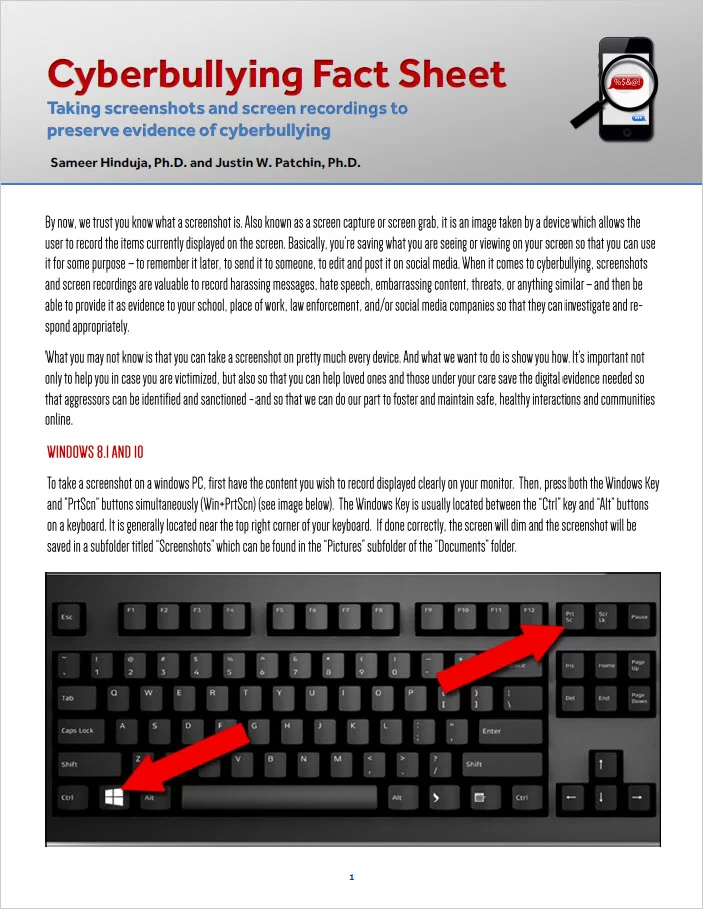
Cyberbullying Fact Sheet: Taking Screenshots and Screen Recordings to Preserve Evidence
This Fact Sheet provides you with the instructions on how to create an image or video of what you see on any screen (on any device – your laptop, tablet, gaming console, Kindle, phone, iWatch, etc.) so that evidence of cyberbullying (or any other problematic behavior) can be saved and used for an investigation at […]

2021 Cyberbullying Data
This study surveyed a nationally-representative sample of 2,546 middle and high school students between the ages of 13 and 17 in the United States. Data were collected in April and May of 2021. Click on the thumbnail images to enlarge. Cyberbullying Victimization. We define cyberbullying as: “Cyberbullying is when someone repeatedly and intentionally harasses, mistreats, […]
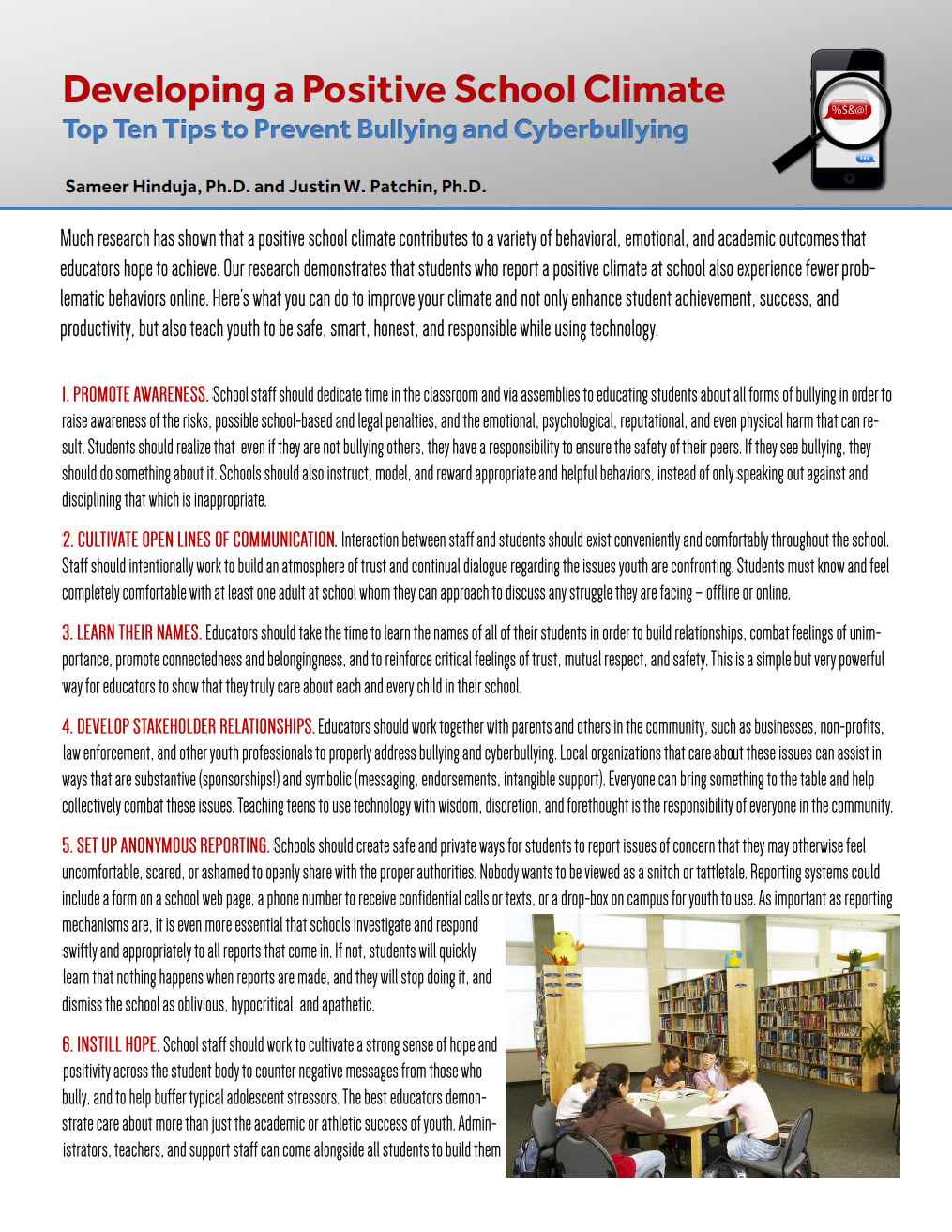
Developing a Positive School Climate to Prevent Bullying and Cyberbullying
[Note: To download a .pdf version of this resource, just click on the image above.] Spanish Translation Available Here Much research has shown that a positive school climate contributes to a variety of behavioral, emotional, and academic outcomes that educators hope to achieve. Our research demonstrates that students who report a positive climate at school […]

Teen Sexting: Advice for Parents
(For a formatted .pdf version of this article for distribution, click here]). Sexting is when someone takes a naked or semi-naked (explicit) picture or video of themselves, usually using their phone, and sends it to someone else. Some teens participate in sexting voluntarily as a way to flirt or be intimate with a romantic partner, […]
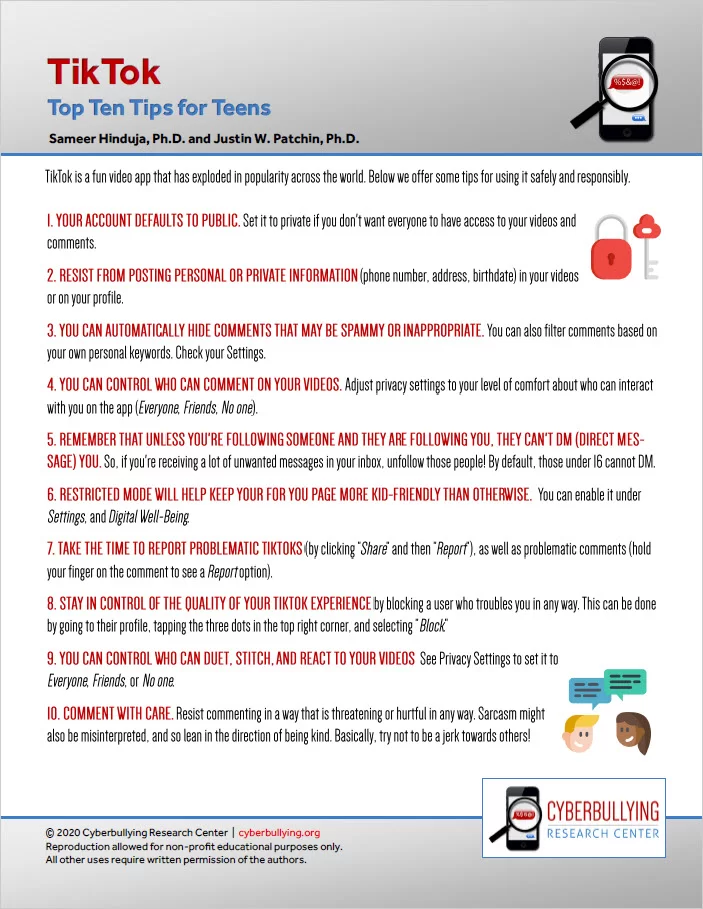
TikTok: Top Ten Tips for Teens
(For a formatted .pdf version of this article for distribution, click on the image above [or click here]). TikTok is a fun video app that has exploded in popularity across the world. Below we offer some tips for using it safely and responsibly. 1. YOUR ACCOUNT DEFAULTS TO PUBLIC. Set it to private if you […]

